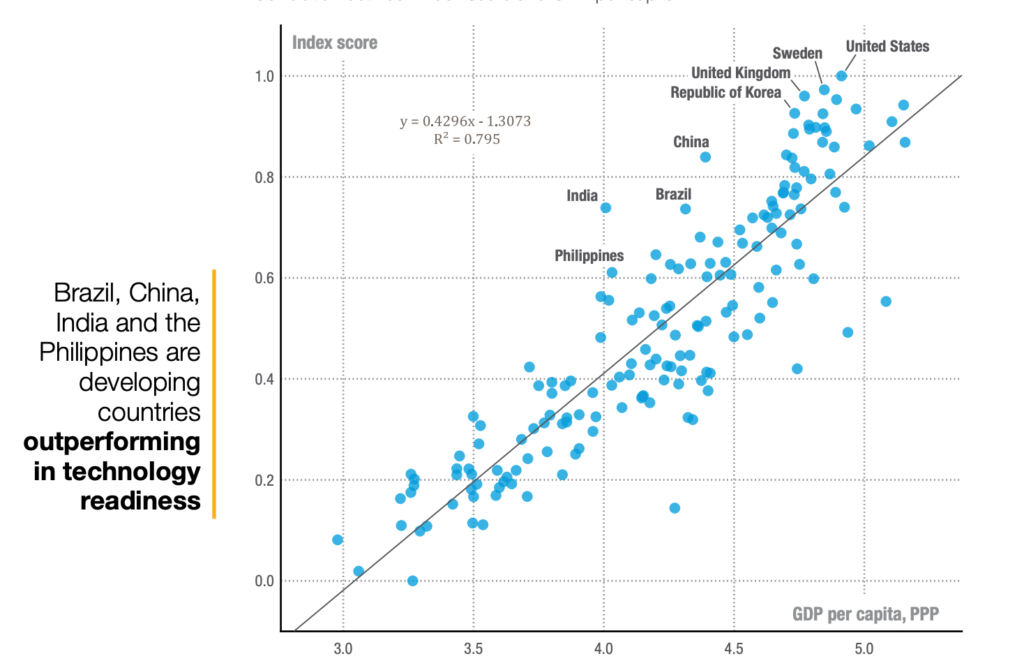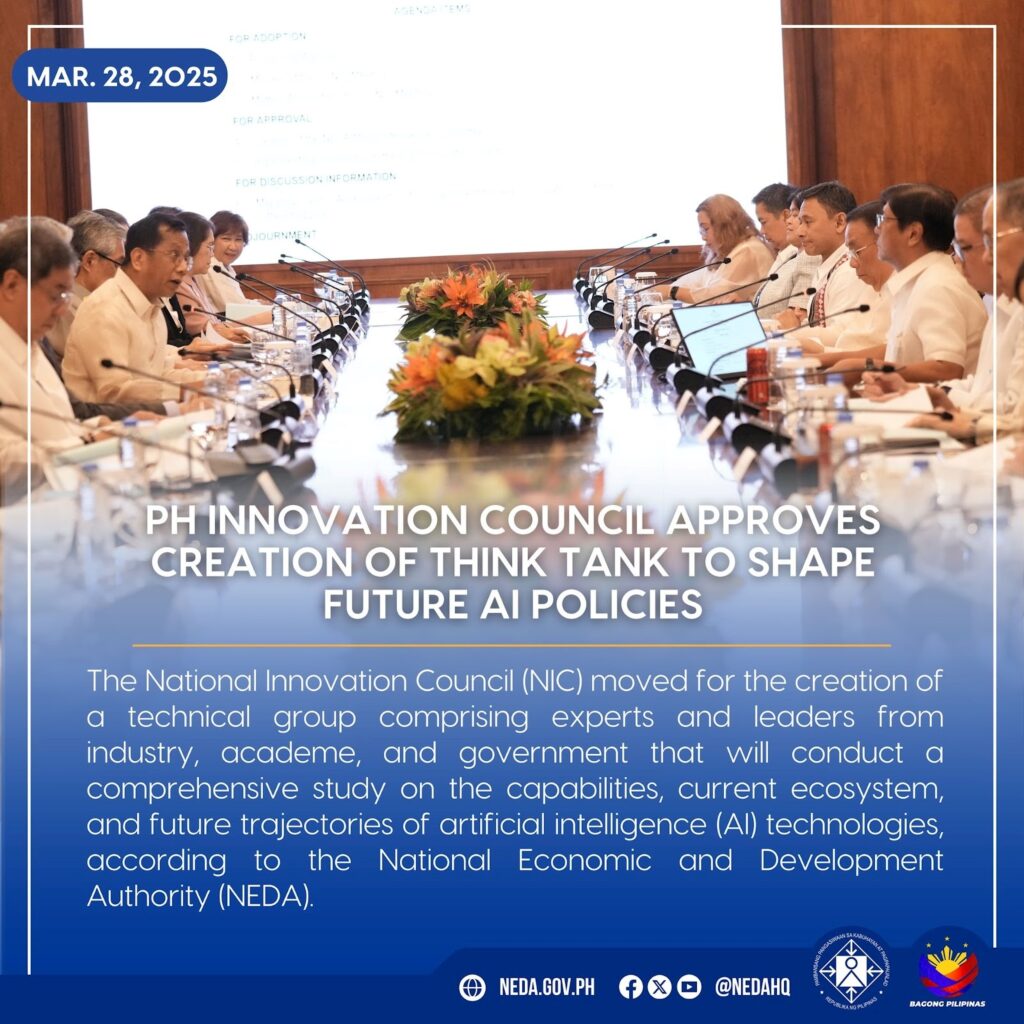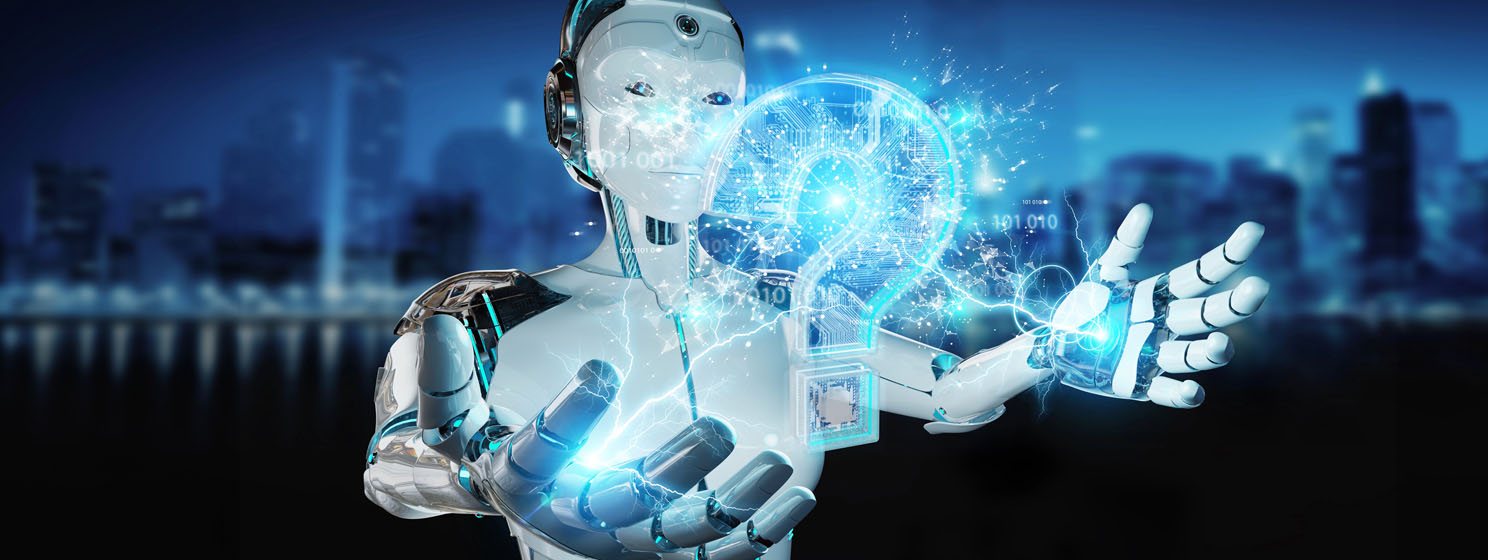|
Getting your Trinity Audio player ready...
|
The Philippines is being recognized as one of the early adopters of artificial intelligence (AI) among developing countries, outpacing expectations tied to its income level. According to the United Nations Conference on Trade and Development’s (UNCTAD) 2025 Technology and Innovation Report, the country is among a select group of nations showing early and effective engagement with frontier technologies, particularly AI.
“Brazil, China, India and the Philippines are developing countries outperforming in technology readiness,” the report stated. This assessment is based on UNCTAD’s Frontier Technologies Readiness Index, which evaluates countries’ preparedness to adopt and leverage emerging technologies such as AI. The index considers key indicators, including infrastructure, skills, and industry activity.

The Philippines’ inclusion in this list reflects both foundational preparedness and practical implementation of AI. This suggests that the country is poised to benefit from global advances in automation, productivity, and innovation.
Outperforming income-based expectations
Despite having a relatively low gross domestic product (GDP) per capita, the Philippines ranks higher than many of its peers in technology readiness. This highlights how policy, industry capacity, and skills training can offset economic disadvantages when adopting new technologies.
“Many countries have strong potential to seize the opportunities offered by frontier technologies and boost economic growth and overall development,” the report observes. The Philippines’ performance stands out because countries with similar income levels often have lower digital infrastructure and skills. The country’s strong performance suggests that proactive strategies can close this gap.
UNCTAD urges developing countries to take this path: “Developing countries should quickly set and implement AI strategies that align with their national development goals and agendas.” The report adds that countries risk falling further behind without early and long-term strategies as the global AI landscape accelerates.
Practical AI use in the services sector
The report highlights the Philippines’ early AI application in the workforce. This practical implementation points to a broader readiness in sectors that have long been the backbone of the Philippine economy. “AI-related skills requirements were concentrated in information technology, finance, and professional services,” the report noted, citing a related study in India analyzing online job postings from 2016 to 2019. Often outsourced to the Philippines, these sectors imply that local workers may have had early exposure to and experience with AI tools.
Strong government push through policy and legislation
The Philippines has also made strides in crafting a policy environment that supports AI development. UNCTAD cites the Digital Workforce Competitiveness Act, published in 2023, as a critical piece of legislation to boost digital skills across the population.
“The legislation puts human development at the forefront, aiming for equitable access and the provision of digital skills and competences that meet global quality standards to accelerate innovation and entrepreneurship,” the report states. The Act promotes data analytics, AI, engineering, and cloud computing training, ensuring that workers are equipped for evolving technological demands.
Described as taking an “anticipatory approach,” the law includes mapping digital skills and technologies to guide the evolution of the country’s jobs landscape. This includes forming an inter-agency council tasked with coordinating initiatives and raising awareness of digital upskilling programs. As UNCTAD puts it, the council “provides a single-entry point for training, certification and scholarships,” enabling a more streamlined and inclusive approach to digital workforce development.
Last month, the country’s National Innovation Council (NIC) approved the creation of a technical group to study the current landscape and future direction of AI in the Philippines, according to the National Economic and Development Authority (NEDA).

“If we want to harness the potential of AI, we urgently need a national approach and policy that will ensure alignment and collaboration between public and private sector efforts. More importantly, we must ensure that the Filipino workforce is adequately prepared to upskill and transition efficiently to these AI developments. To achieve this, we need to understand precisely what we are dealing with and how AI developments can be contextualized within the Philippine setting,” NEDA Secretary Arsenio Balisacan said.
The broader context: AI and global inequality
UNCTAD estimates that the global market for AI will reach $4.8 trillion by 2033, but warns that access to the necessary infrastructure and expertise remains highly concentrated in developed economies. The report points out that “118 countries, mostly from the so-called ‘global south,’ are still absent from major developments related to the technology.”
The Philippines and a few other emerging economies defy this trend. However, the report emphasizes that early movers must also think long-term. “While it may be more immediately feasible to support AI adoption for particular sectoral needs, developing countries should also make long-term strategic plans to steer their own AI development,” UNCTAD states. Without such planning, “latecomers may be left with few options.”
In order for artificial intelligence (AI) to work right within the law and thrive in the face of growing challenges, it needs to integrate an enterprise blockchain system that ensures data input quality and ownership—allowing it to keep data safe while also guaranteeing the immutability of data. Check out CoinGeek’s coverage on this emerging tech to learn more why Enterprise blockchain will be the backbone of AI.
Watch: Demonstrating the potential of blockchain’s fusion with AI

 03-02-2026
03-02-2026 




